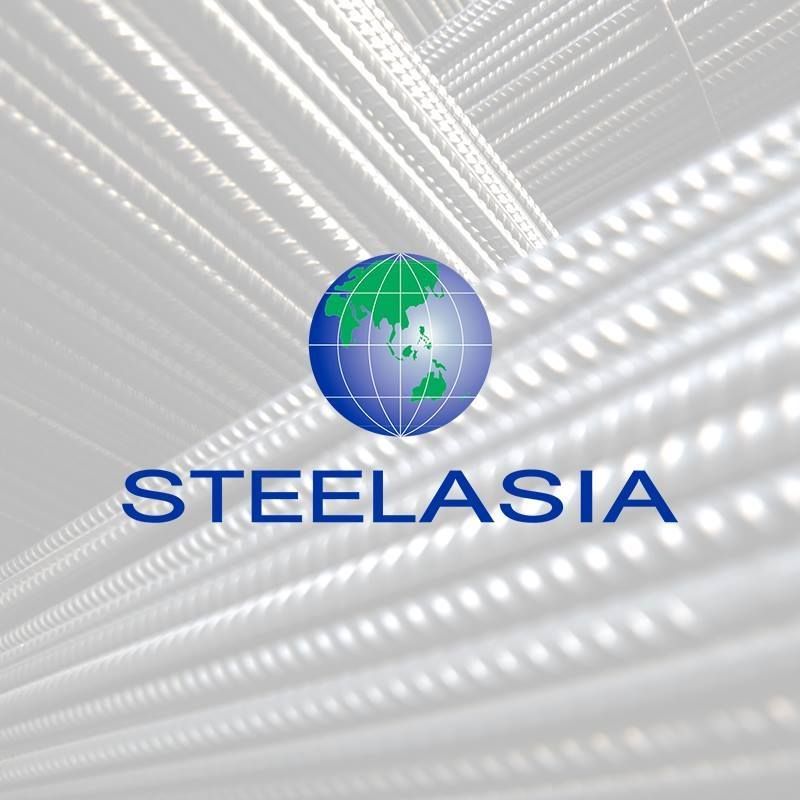Founded in 1965 from the partnership of Filipino businessman Benito Yao and Go Kim Pah (founder of Equitable Bank), SteelAsia Manufacturing Corp (SAMC) faced numerous hurdles along its growth path, but persisted despite the pandemic which halted construction and road infrastructure works; the Asian Financial Crisis and surging imports of steel and iron products by the local construction and fabrication sectors.
It started as a small rebar facility (short for reinforcing bar) which eventually bloomed into one of the world’s largest and most modern rebar manufacturing companies today.
SteelAsia is the flagship steel company of the Philippines, serving the country with over three million tons of rebar per year.
Last July 9, President Marcos inaugurated the new SteelAsia plant in Compostela, Cebu, one of five that it plans to operate within the near future as part of its aggressive expansion program
SteelAsia manufactures nearly one of every two steel bars installed in construction. It supplies 80 percent of the rebar needs for land, sea, air, power and communications infrastructure..
Just recently, the company announced it plans to put up five steel plants worth P82 billion in the next four years to replace imports, generate new businesses, create local jobs, and stimulate the local economy.
In a statement on Wednesday, SteelAsia said the upcoming plants in Lemery, Batangas will cost P18 billion, Candelaria, Quezon, P30 billion; and Davao City, P8 billion. These three plants are expected to be completed by 2026.
Meanwhile, the two plants in Concepcion, Tarlac are projected to cost P26 billion and will be completed in 2027, reported Business Mirror.
SteelAsia Chairman and CEO Benjamin Yao said the new plants will churn out new products that are all being imported at the moment.
In 2022, the company noted that the Philippines spent over $3 billion to import steel products like wire rods, billets, sections and sheet piles.
Yao said steel products from these new plants will have “applications” in infrastructure and construction and in various downstream steel-intensive manufacturing industries.
“We are building the mother industry for manufacturing. We are way behind our neighbors but we will catch up. And as we do so, our mills and steel products will create new manufacturing industries that will result in more jobs and higher skilled workers, and economic growth, among others.”
Yao said he informed the President of these projects during the inauguration of the “cutting edge” P10-billion plant in Compostela, Cebu earlier this July.
The President stressed the need to “revitalize” the local steel industry and pledged his administration’s support for the company’s expansion plans.
“Over 70 percent of all infrastructure, housing, power, industrial and other business developments in the country use SteelAsia rebar.”
Last May, SteelAsia Vice President Rafael Hidalgo told a briefing in Cebu that the local steel industry can be “70 percent self-sufficient” with SteelAsia’s expansion and potential foreign investments in as early as four years.
Hidalgo said the expansion plans, “excluding Lemery, Batangas would still cost P65 billion.”
The company operates existing plants in Batangas, Bulacan, Davao, and Cebu. The steel firm said this is a “deliberate geographic strategy” of Yao to cut transport costs and sell to customers at the same price across the country.
Hidalgo noted that the Philippines is heavily dependent on steel imports with over 60 percent of its billets requirements imported, while (except for rebar) 86 percent of finished steel is imported.
“The development of downstream manufacturing and other industries is hampered by the lack of domestically produced steel products,” he stressed.
At the inauguration of SteelAsia’s Compostela plant, the President asked the departments of trade and industry and energy and other agencies concerned to “resolve the industry’s concerns regarding high power and logistics costs, which make up the bulk of its production inputs.”
He asked DTI to update the Iron and Steel Roadmap to guarantee its “continued stability and relevance amid regional and global trends and challenges.”
#WeTakeAStand #OpinYon #OpinYonNews #SAMC #SteelAsia #Infrastructure
